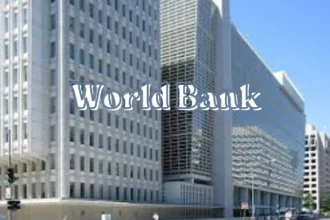The recent conviction of Lagos-based jeweller, Uzondu Precious Chimaobi, for conducting business in U.S. dollars has sparked public debate on the consistency of law enforcement in Nigeria’s financial system, especially following a contrasting development involving Dangote Petroleum Refinery.
On Tuesday, April 15, the Federal High Court sitting in Ikoyi sentenced Chimaobi to four years in prison, with the option of a ₦650,000 fine, for refusing to accept the Nigerian Naira during a commercial transaction. Justice Alexander Owoeye delivered the verdict after the jeweller changed his plea from not guilty to guilty on April 14, 2025.
Chimaobi, who operates Unlimited Jewellers Limited at Atlantic Mall, Chevron Drive, Lekki, was convicted under Section 20 of the Central Bank of Nigeria (CBN) Act, 2007, which mandates the exclusive use of the Naira for transactions in Nigeria.
According to the Economic and Financial Crimes Commission (EFCC), a sting operation involving an undercover agent confirmed that the jeweller only accepted U.S. dollars for a Cartier diamond bracelet. The transaction, valued at $5,700, was conducted entirely in dollars, with a receipt issued in the same currency—leading to Chimaobi’s arrest and prosecution.
Meanwhile, in a separate but related development, Dangote Petroleum Refinery recently announced a temporary suspension of Naira-based transactions for its petroleum products. According to a statement by the company, the move is to “align sales with crude procurement costs,” as crude oil for the refinery is currently acquired in U.S. dollars.
The statement clarified that this suspension is a strategic and temporary adjustment, and that transactions in Naira would resume once the company begins receiving Naira-denominated crude allocations from the Nigerian National Petroleum Corporation (NNPC).
Although both scenarios involve dollar-denominated transactions in Nigeria, only one has resulted in legal consequences so far. This has prompted public discourse around the uniformity and fairness of Nigeria’s legal and regulatory enforcement, particularly regarding its monetary policies.
Legal analysts have noted that while Section 20 of the CBN Act applies to all individuals and entities operating within Nigeria, discretion in enforcement may vary based on factors such as economic impact, scale of operation, or national interest.
The EFCC has not made any public comment regarding the Dangote case, and it remains unclear whether any regulatory or legal scrutiny will be applied to the refinery’s temporary policy shift.As economic pressures mount and Nigeria continues to grapple with foreign exchange challenges, these cases highlight the growing tension between policy enforcement and economic realities, prompting calls for clarity and consistency in the application of financial regulations across the board.


















